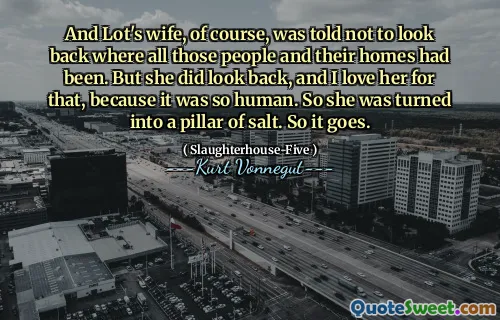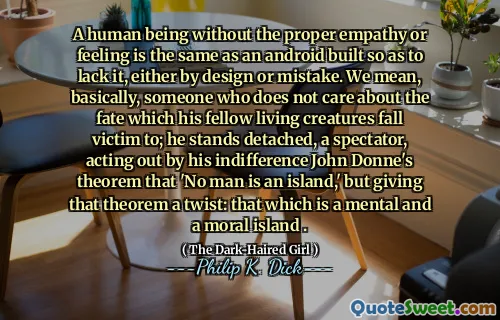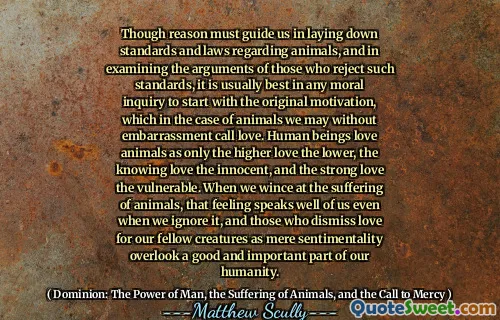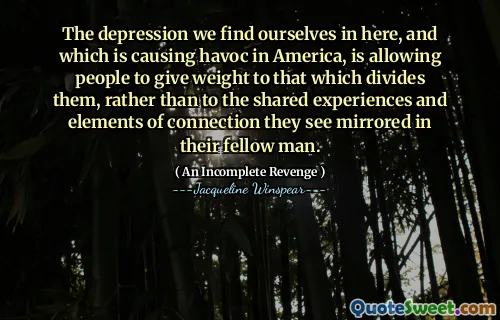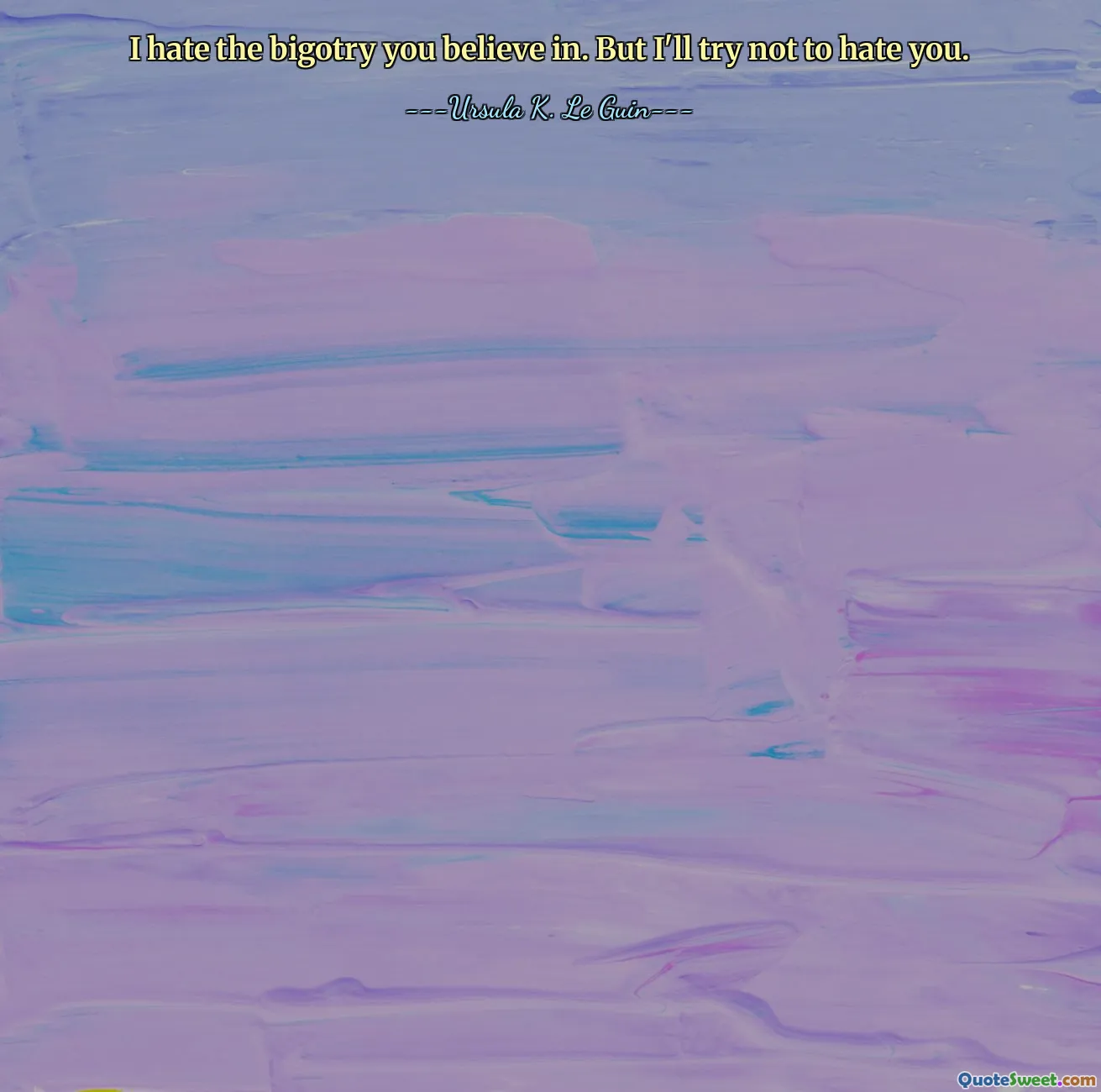
I hate the bigotry you believe in. But I'll try not to hate you.
This quote from Ursula K. Le Guin encapsulates a profound struggle that many face: the conflict between opposing harmful beliefs and maintaining compassion for the individual who holds those beliefs. It highlights the distinction between disagreeing vehemently with a concept such as bigotry, which denotes intolerance toward those different from oneself, and retaining a sense of humanity that allows for tolerance, empathy, and even kindness toward the person enduring those views. The phrase "I hate the bigotry you believe in" conveys a strong disdain for injustice and prejudice, reflecting a moral stance against social attitudes that perpetuate hatred. Yet, the subsequent clause, "But I'll try not to hate you," demonstrates an intentional effort to resist responding to bigotry with further hatred. This reflects emotional maturity, patience, and the hope that individuals can change over time or be reached through understanding and dialog rather than condemnation alone. It also underscores the complexity of hate as an emotion—it can be directed both at actions and ideas and at people themselves, but the latter often leads to cycles of animosity that hinder growth and reconciliation. In this way, the quote encourages readers to examine where they place their aversion and to prioritize love or compassion for people even as they confront and stand against bigotry and intolerance. This duality invites a balanced perspective on activism and personal relationships, emphasizing that combating injustice does not necessitate losing one’s humanity.






